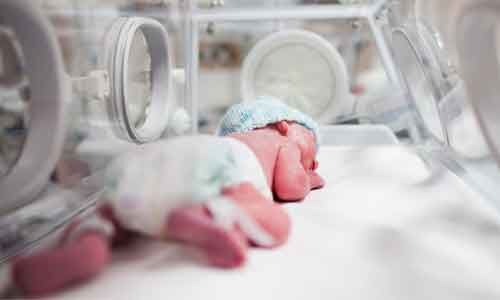- Home
- Medical news & Guidelines
- Anesthesiology
- Cardiology and CTVS
- Critical Care
- Dentistry
- Dermatology
- Diabetes and Endocrinology
- ENT
- Gastroenterology
- Medicine
- Nephrology
- Neurology
- Obstretics-Gynaecology
- Oncology
- Ophthalmology
- Orthopaedics
- Pediatrics-Neonatology
- Psychiatry
- Pulmonology
- Radiology
- Surgery
- Urology
- Laboratory Medicine
- Diet
- Nursing
- Paramedical
- Physiotherapy
- Health news
- Fact Check
- Bone Health Fact Check
- Brain Health Fact Check
- Cancer Related Fact Check
- Child Care Fact Check
- Dental and oral health fact check
- Diabetes and metabolic health fact check
- Diet and Nutrition Fact Check
- Eye and ENT Care Fact Check
- Fitness fact check
- Gut health fact check
- Heart health fact check
- Kidney health fact check
- Medical education fact check
- Men's health fact check
- Respiratory fact check
- Skin and hair care fact check
- Vaccine and Immunization fact check
- Women's health fact check
- AYUSH
- State News
- Andaman and Nicobar Islands
- Andhra Pradesh
- Arunachal Pradesh
- Assam
- Bihar
- Chandigarh
- Chattisgarh
- Dadra and Nagar Haveli
- Daman and Diu
- Delhi
- Goa
- Gujarat
- Haryana
- Himachal Pradesh
- Jammu & Kashmir
- Jharkhand
- Karnataka
- Kerala
- Ladakh
- Lakshadweep
- Madhya Pradesh
- Maharashtra
- Manipur
- Meghalaya
- Mizoram
- Nagaland
- Odisha
- Puducherry
- Punjab
- Rajasthan
- Sikkim
- Tamil Nadu
- Telangana
- Tripura
- Uttar Pradesh
- Uttrakhand
- West Bengal
- Medical Education
- Industry
Co administration of antenatal steroids and indomethacin tied to intestinal perforation in preterm neonates

According to recent research, it has been found out that in preterm neonates of <26 weeks' gestation or birth weight <750 g, co-exposure of antenatal steroids (ANS) and prophylactic indomethacin (PI) was associated with spontaneous intestinal perforation (SIP), especially if antenatal steroids (ANS) were received within 7 days before birth.
The study is published in the Journal of Pediatrics.
Hemasree Kandraju and colleagues from the Department of Pediatrics, University of Toronto, Toronto, Ontario, Canada carried out this study to evaluate the association of a combined exposure to antenatal steroids and prophylactic indomethacin with the outcome of spontaneous intestinal perforation (SIP) among neonates born at <26 weeks' gestation or <750 g birth weight.
The researchers conducted a retrospective study of preterm infants admitted to Canadian Neonatal Network (CNN) units . Infants were classified into 2 groups based on receipt of antenatal steroids; the latter sub-grouped as recent (≤7 days before birth) or latent (>7 days before birth) exposures.
The co-exposure was PI. The primary outcome was SIP. Multivariable logistic regression analysis was used to calculate adjusted odds ratios (AOR).
The results of the study showed-
a. Among 4720 eligible infants, 4121 (87%) received ANS and 1045 (22.1%) received PI.
b. Among infants exposed to ANS, those who received PI had higher odds of SIP (AOR 1.61, 95% CI 1.14-2.28) compared with no PI.
c. Subgroup analyses revealed recent ANS exposure with PI had higher odds of SIP (AOR 1.67, 95% CI 1.15-2.43), but latent ANS exposure with PI did not (AOR 1.24, 95% CI 0.48-3.21), compared with the respective groups with no PI.
d. Among those not exposed to ANS, mortality was lower among those who received PI (AOR 0.45, 95% CI 0.28-0.73) compared with no PI.
Hence, the authors concluded that "in preterm neonates of <26 weeks' gestation or birth weight <750 g, co-exposure of ANS and PI was associated with SIP, especially if ANS was received within 7 days before birth. Among those unexposed to ANS, PI was associated with lower odds of mortality."
Dr. Nandita Mohan is a practicing pediatric dentist with more than 5 years of clinical work experience. Along with this, she is equally interested in keeping herself up to date about the latest developments in the field of medicine and dentistry which is the driving force for her to be in association with Medical Dialogues. She also has her name attached with many publications; both national and international. She has pursued her BDS from Rajiv Gandhi University of Health Sciences, Bangalore and later went to enter her dream specialty (MDS) in the Department of Pedodontics and Preventive Dentistry from Pt. B.D. Sharma University of Health Sciences. Through all the years of experience, her core interest in learning something new has never stopped. She can be contacted at editorial@medicaldialogues.in. Contact no. 011-43720751
Dr Kamal Kant Kohli-MBBS, DTCD- a chest specialist with more than 30 years of practice and a flair for writing clinical articles, Dr Kamal Kant Kohli joined Medical Dialogues as a Chief Editor of Medical News. Besides writing articles, as an editor, he proofreads and verifies all the medical content published on Medical Dialogues including those coming from journals, studies,medical conferences,guidelines etc. Email: drkohli@medicaldialogues.in. Contact no. 011-43720751


